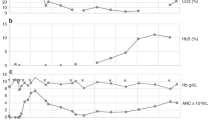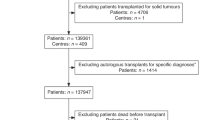Abstract
Peer review is believed to be important in maintaining the quality and integrity of research in academic endeavors. Recently, the value of the current peer review process, which is more than 100 years old has come into question. In the field of hematopoietic cell transplantation (HCT), peer review was unable to prevent the publication of the largest and most notorious scientific fraud in our field. In order to assess how the HCT community views and how engaged it is with the peer review process, the American Society of Blood and Marrow Transplantation conducted a survey of all of its members in 2014. The survey was sent to all active members through multiple email communications in August and September 2014. Of a total of 1183 members, 149 responded. Almost all of the respondents had participated in the peer review process, with few respondents declining ever to review manuscripts. The most common cause for declining review requests was lack of time. Most respondents (68%) thought that the current peer review process was relatively fair and unbiased, whereas only 9% of the respondents stated that they did not believe in the peer review process. In conclusion, among the respondents of this survey most felt the peer review process to be valuable and fair, however, the lack of response suggests that further study into improving the peer review process in the field of HCT is warranted in the era of electronic publishing and communication.
This is a preview of subscription content, access via your institution
Access options
Subscribe to this journal
Receive 12 print issues and online access
$259.00 per year
only $21.58 per issue
Buy this article
- Purchase on Springer Link
- Instant access to full article PDF
Prices may be subject to local taxes which are calculated during checkout

Similar content being viewed by others
References
Al Kawi MZ . History of medical records and peer review. Ann Saudi Med 1997; 17: 277–278.
Oldenburg H . Epistle dedicatory. Phil Trans 1665; 1: 1–22.
Spier R . History of the peer review process. Trends Biotechnol 2002; 20: 357–358.
Schafner AC . The future of scientific journals: lessons from the past. Inform Technol Libr 1994; 13: 239–247.
Kassirer JP, Campion EW . Peer review: crude and understudied, but indispensable. JAMA 1994; 272: 96–97.
Bezwoda WR, Seymour L, Dansey RD . High-dose chemotherapy with hematopoietic rescue as primary treatment for metastatic breast cancer: a randomized trial. J Clin Oncol 1995; 13: 2483–2489.
Weiss RB, Rifkin RM, Stewart FM, Theriault RL, Williams LA, Herman AA et al. High-dose chemotherapy for high-risk primary breast cancer: an on-site review of the Bezwoda study. Lancet 2000; 355: 999–1003.
Weiss RB, Gill GG, Hudis CA . An on-site audit of the South African trial of high-dose chemotherapy for metastatic breast cancer and associated publications. J Clin Oncol 2001; 19: 2771–2777.
Howard DH, Kenline C, Lazarus HM, Lemaistre CF, Maziarz RT, McCarthy PL Jr et al. Abandonment of high-dose chemotherapy/hematopoietic cell transplants for breast cancer following negative trial results. Health Serv Res 2011; 46: 1762–1777.
Haug CJ . Peer-review fraud—hacking the scientific publication process. N Engl J Med 2015; 373: 2393–2395.
Jefferson T, Rudin M, Brodney Folse S, Davidoff F . Editorial peer review for improving the quality of reports of biomedical studies. Cochrane Database Syst Rev 2007; (2): MR000016.
Patel J . Why training and specialization is needed for peer review: a case study of peer review for randomized controlled trials. BMC Med 2014; 12: 128.
Elliott C . On predatory publishers: a Q&A with Jeffrey Beall. Brainstorm. The Chronicle of Higher Education 2012 Available at: http://chronicle.com/blogs/brainstorm/on-predatory-publishers-a-qa-with-jeffrey-beall/47667.
Shen C, Björk B-C . 'Predatory' open access: a longitudinal study of article volumes and market characteristics. BMC Medicine 2015; 13: 230.
Author information
Authors and Affiliations
Corresponding author
Ethics declarations
Competing interests
The authors declare no conflict of interest.
Rights and permissions
About this article
Cite this article
Giralt, S., Korngold, R. & Lazarus, H. Peer review in hematopoietic cell transplantation: are we doing our fair share?. Bone Marrow Transplant 51, 1159–1162 (2016). https://doi.org/10.1038/bmt.2016.108
Received:
Accepted:
Published:
Issue Date:
DOI: https://doi.org/10.1038/bmt.2016.108



